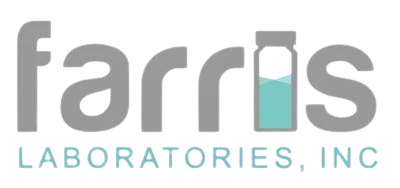Common Questions regarding Covid and Sanitizers
Personal protective equipment (PPE) is still a topic of concern in the ongoing Covid pandemic. In the early stages of Covid-19, we saw a worldwide shortage of PPE. Major hospitals and healthcare centers that needed supplies to protect providers and their patients ran short of PPE. Check out our answers to common questions about hand sanitizer and Covid PPE below.
This PPE shortage caused some regulations around the use of PPE to bend to the situation. For example, what was previously designated as single-use PPE was extended for multiple uses. As major hospitals and healthcare centers ran out of PPE such as surgical masks, gowns, and hand sanitizers, other materials were substituted out of necessity.
Is it ok to use non-alcohol-based hand sanitizer instead of alcohol-based ones during COVID 19 pandemic?
The pandemic changed how medical personnel and consumers use PPE and hand sanitizers. Non-alcohol-based hand sanitizers that contain the active ingredient benzalkonium chloride have become widely available to the public. While no hand sanitizer manufacturer can legally claim a product protects against Covid-19, some sanitizers are known to provide better protection than others.
Non-alcohol-based sanitizers are widely available. However, according to the Centers for Disease Control and Prevention (CDC), people should use alcohol-based sanitizers that include at least 60% alcohol. Non-alcohol-based hand sanitizers are not recommended by the CDC and should not replace alcohol-based sanitizers.
What percentage of alcohol in hand sanitizer is enough to replace hand washing during the COVID-19 pandemic?
If you have the option to wash hands with plain soap and water, always use this method to clean your hands. If soap or water is not available, the only recommended substitute is to use alcohol-based hand sanitizer that contains a minimum of 60% alcohol.
The CDC and the Food and Drug Administration (FDA) have stated there is no evidence that shows antibacterial soap is more effective than plain soap and water.
What does it mean when the label of my hand sanitizer says 'alcohol'?
If your hand sanitizer label says “alcohol” only, it means that the hand sanitizer contains only ethanol, otherwise known as ethyl alcohol, an FDA-approved alcohol.
According to the FDA, there are only two types of alcohol permitted as an active ingredient in hand sanitizer: ethanol, also called ethyl alcohol, or isopropyl alcohol, also known as isopropanol or 2-propanol.
Alcohols approved for use in hand sanitizer:
- Ethanol
- Ethyl alcohol
- Isopropyl alcohol
- Isopropanol
- 2-propanol
“Alcohol” is defined as “ethyl alcohol” by the United States Pharmacopeia and the National Formulary.
There are two alcohols that cannot be used in hand sanitizer due to toxicity: 1-propanol and methanol. These two alcohols are used as solvents in product manufacturing, but are toxic. If your hand sanitizer label says “alcohol,” the alcohol used must be an approved alcohol for hand sanitizer.
Unapproved alcohols that should never be used in hand sanitizer:
- 1-propanol
- Methanol
If your hand sanitizer ingredients list 1-propanol or methanol, do not use it and properly dispose of the product as hazardous waste. Do not pour down a drain or mix with other alcohols or chemicals.
Where can I buy hand sanitizer if I can’t find it in the store?
Sometimes hand sanitizers are not available in stores due to high demand and low supply. If you can’t find hand sanitizer at a retail store such as a grocery store or pharmacy, the FDA does not recommend making your own hand sanitizer.
The FDA has issued a temporary policy on alcohol-based hand sanitizers to make hand sanitizer more widely available to consumers and healthcare workers. The temporary policy on hand sanitizer preparation states that over the counter (OTC) compounding of alcohol-based hand sanitizers may be prepared by certified entities.
Do not buy or use a hand sanitizer if:
- It has been made with methanol or 1-propanol, both of which are toxic
- The product label lists methanol or 1-propanol
- Testing shows there is microbial contamination
- The product is under recall by a distributor or manufacturer
- The sanitizer contains less than 60% of an active ingredient of either ethyl alcohol, isopropyl alcohol, or benzalkonium chloride
- The sanitizer was manufactured at a facility that makes products found to contain methanol or 1-propanol
- The packaging resembles a food or beverage container, which increases the risk of accidental ingestion
When it is not possible to wash hands with plain soap and water for 20 seconds, use an alcohol-based hand sanitizer made of at least 60% alcohol. Wash your hands with soap and water at the earliest opportunity for the best protection against illness.




